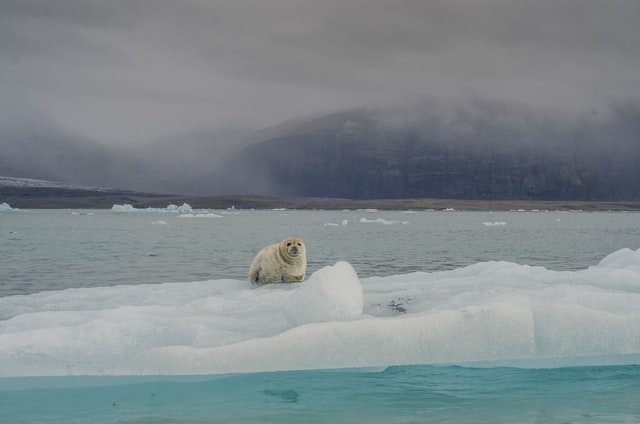Climate change goes way beyond “an inconvenient truth.” We are overheating our planet to alarming levels with catastrophic consequences. According to NASA, “Nineteen of the 20 warmest years all have occurred since 2001, with the exception of 1998” and 2020 is on a sizzling pace to be one of the hottest years. Every decade since the 1970s has been hotter than the previous decade.
Picture an overheated car (and what we drive), an overcooked dinner (and what we eat), and someone sick with a fever (and how we act). Now imagine that on a planetary scale.
Our climate crisis is the biggest social, political economic and environmental problem facing our planet and its inhabitants, affecting every country and every species, mostly in negative ways. Climate change refers to the increasing average surface temperature of the Earth’s air and water, and its various environmental effects.
People are becoming increasingly aware of, and concerned about, the climate crisis and its consequences, despite corporate misinformation and some media obfuscation, due to frequent reports regarding record heat, droughts, wildfires, an increase in the number and severity of storms and other extreme weather events, the melting of glaciers – about 80% of the world’s glaciers are rapidly shrinking – permafrost, and polar ice caps, as well as decreasing snow on Mt. Kilimanjaro and other tropical mountains, shrinking lakes, rising sea levels, flooding, submerged islands, changes in wind directions, acidification of the oceans, endangered species and extinctions, spreading diseases, environmental refugees,and other ominous signs of disaster.
Greenhouse gas levels in the atmosphere continue to rise and there are fears of “tipping points” from which we could not come back. Climatologists have asserted that concentrations of 350 parts per million (ppm) of atmospheric CO2 is a threshold level of atmospheric carbon dioxide, which had hovered below 285 ppm for thousands of years prior to the Industrial Revolution, yet surpassed 418 ppm on June 1, 2020, the highest value in human history, indeed the highest level in about three million years.
By Richard H. Schwartz, PhD, Dan Brook PhD
As Jerry Brown, the former governor of California, a state subjected to many severe climate events, commented, “Humanity is on a collision course with nature,”calling this era “the new abnormal,” and warning that various environmental disasters will only “intensify” over the coming years. “Right now, we are facing a man-made disaster of global scale,” says David Attenborough. “Our greatest threat in thousands of years. Climate change. If we don’t take action, the collapse of our civilizations and the extinction of much of the natural world is on the horizon.” Global climate change is also endangering polar bears, penguins, seals, walruses, salmon, elephants, giraffes, frogs, butterflies, birds, bees and many other animals, threatening up to one-third of all fauna species. In contrast, increases in carbon dioxide and heat levels will lead to an increase in the number and range of mosquitoes, further spreading discomfort and disease. Additionally, there is an increase in food insecurity, terrorism, ethnic violence and war, according to various militaries and intelligence agencies, especially in Central America, South Asia, Africa, and the Middle East, including Syria. In December 2019, World Meteorological Organization secretary-general Petteri Taalas lamented that we will witness “ever more harmful impacts on human well being” if we do not substantially reverse course.
In August 2010, an “ice island” four times the size of Manhattan calved from the Petermann Glacier in Greenland into the sea (in addition, the Ayles Ice Shelf calved entirely in August 2005 and the Markham Ice Shelf broke up in 2008, to mention just a couple of other such alarming events). Recent years have marked the “historic minimum” of Arctic Sea ice. “Such a path is not merely unsustainable,” according to Harvard Prof. John P. Holdren, former president of the American Association for the Advancement of Science, “it is a prescription for disaster.” Yet, a 2019 UN report wrote that, despite many nations’ pledges to reduce them, greenhouse gases are still rising perilously, growing an average of 1.5% per year in the past 10 years.
On June 20, 2020, the temperature in the Arctic Circle soared to 100.4º Fahrenheit (38ºC) for the first time in recorded history, hotter than any June day ever recorded in Miami, Florida, while it was snowing in other parts of Siberia. Houston, Texas, has been ravaged by five “500-year storms” in the last five years. Something projected to happen only once in half a millennium happened five times in a row. None of this is normal.
These and various other extreme weather events and other eco-spasms have become more frequent, more intense, and are projected to multiply with dire consequences for the world. Tragically, new records are being set each year.
Humanity is threatened as never before and major changes need to occur to put our imperiled planet onto a sustainable path – and as soon as possible. Even though a small number of individuals still deny the reality of climate change, there is strong scientific and environmental consensus across a wide range of disciplines that climate change is real, serious, worsening, and caused by human activity (anthropogenic) among all major scientific and environmental organizations, journals, magazines, and museums, and nearly all peer-reviewed scholarly articles, in addition to all reputable colleges and universities and most governments and large corporations. The evidence is overwhelming and continuing to pile up.
A further indication of how serious climate threats are is that in the two weeks prior to the final submission of this article, the following occurred: Israel experienced a major, long-lasting heat wave, with temperature records broken in many cities; California and several other US western states experienced massive wildfires along with some record temperatures; the Koreas were struck by two severe typhoons; the US state of Louisiana was hit by a category four hurricane; there were reports that melting of ice in Greenland had passed a point of no return and that rapid melting of Arctic permafrost is releasing ’shocking amounts of dangerous gases.” This is truly an Earth emergency and earthlings are standing at a global precipice.
The 2019 Intergovernmental Panel on Climate Change (IPCC) Sixth Assessment Report on global warming was written by about 100 climate scientists from 40 countries, based on 6,981 scientific studies and over 42,000 expert and governmental comments. The IPCC has 195 member states. The report carefully delineates clear trends and potentially catastrophic consequences associated with climate change, warning of irreversible change, unless we very soon make radical and unprecedented efforts to counter global warming.
According to the United Nations Foundation, “Overall, it is expected that every degree of warming will likely reduce crop yields, productivity and livestock production globally, while food demand continues to rise. And even worse, hunger and water crises – either caused or exacerbated by climate change – may generate ripple effects across society, leading to poverty, conflict, and migration.” “One action that the IPCC recommends,” it continues, “is to change what’s on our plates: swap out meat for more plant-based foods. While we need collective policy changes, individual actions do add up and send an important message to leaders.” Acting conservatively, the IPCC makes it plain that the current and projected climate change is not simply “natural variation” or “solar activity,” and certainly not a “Chinese hoax,” but “extremely likely” (meaning 95%-100% confidence) the result of human activity. The case is closed on the problem of anthropogenic climate change, with only the extent, mitigations, and solutions to still debate.
It therefore should not be surprising that the US Pentagon states that global warming is a larger threat than even terrorism. “Picture Japan, suffering from flooding along its coastal cities and contamination of its fresh water supply, eyeing Russia’s Sakhalin Island oil and gas reserves as an energy source,” suggests a Pentagon memo on global warming. “Envision Pakistan, India and China – all armed with nuclear weapons – skirmishing at their borders over refugees, access to shared river and arable land.” The former secretary-general of the UN, Ban Ki-moon, has said that climate change needs to be taken as seriously as war and, further, that “changes in our environment and the resulting upheavals from droughts to inundated coastal areas to loss of arable land are likely to become a major driver of war and conflict.” Fighting global climate change may be one way to prevent future wars and genocides, simultaneously increasing energy security and physical security.
There are additional causes for concern. The people disproportionately affected by climate chaos are the poor and socially disadvantaged, since they are in the weakest position to guard against environmental damages and will likely suffer the most harm. In the underdeveloped world, and perhaps especially in China, India and Southeast Asia, as well as much of Africa, the Middle East and Latin America, climate change is negatively affecting urban drinking water systems, agricultural output, and commercial and other transport on rivers.
Further, increased suffering and increasing numbers of environmental refugees, along with greater anxiety over access to food, water, land, and housing – the material essentials of life – often lead to unstable conditions that give rise to anger, ethnic violence, gangs, terrorism, fascism, and war. “It’s the poorest of the poor in the world, and this includes poor people even in prosperous societies, who are going to be the worst hit,” states former IPCC Chair Rajendra Pachauri. Those who needlessly degrade and destroy the environment to satisfy their own selfish pleasures are like the pre-revolutionary Queen Marie Antoinette, declaring, “Let them eat carbon dioxide!” Israel is especially threatened by climate change. The coastal plain, where much of Israel’s population and infrastructure are located, could be inundated by a rising Mediterranean Sea. Climate experts project that the Middle East as a whole will become significantly hotter and drier, and military experts believe that this makes instability, terrorism, ethnic violence, and war more likely. The gravity of the climate threats to Israel was captured in the December 4, 2019 headline in The Jerusalem Post: “Hot and dry: Climate report spells disaster.” Don’t we want our children, grandchildren, and future generations to not only survive, but to thrive? To have a world that is at least as good, and hopefully better, than the one we do?
Yes, we need our governments, corporations, schools, religious institutions, and other organizations to get actively involved in fighting climate change. Yes, we need to stop deforestation and increase reforestation. Yes, we need more resource conservation and more energy-efficient vehicles, appliances, electronics, batteries, and light bulbs. And, yes, our society needs to switch away from dirty and dangerous fossil fuels and toward renewable energy, such as solar, wind, tidal, wave, biomass, hydrogen, geothermal, algae and others. But while we are struggling for these important and positive large-scale social changes, we also need to say “yes!” to personal changes.
In fact, the fourth IPCC report states that “changes in lifestyles and consumption patterns that emphasize resource conservation can contribute to developing a low-carbon economy that is both equitable and sustainable.” A major study showing how personal “changes in lifestyles and consumption” can affect global warming is in the 2006 UN Food and Agriculture Organization (FAO) report, titled “Livestock’s Long Shadow.” It states that animal-based agriculture causes approximately 18% of greenhouse gas emissions, which lead to global warming, an amount greater than that caused by all forms of transportation on the planet combined (about 13.5%). A 2009 report by the respected World Watch Institute titled “Livestock and Climate Change” determined that the FAO grossly underestimated livestock’s contribution by neglecting phenomena inherent to the livestock industry and puts the total contribution at 51% – an absolute majority of anthropogenic greenhouse gases.
Cars are still problematic, of course, but cows and other animals annually raised for human consumption are contributing more to global climate change, thereby causing considerably more damage to our existence and, indeed, to life on Earth. Therefore, what we eat is actually much more important than what we drive and the most important personal change we could make for the environment, as well as for our own health and the lives of animals, is a switch to plant-based eating.
The world is feeding approximately 70 billion farmed animals, while millions of people, disproportionately children, starve to death each year. Almost 40% of the grain produced worldwide – and about 70% in the US – is inefficiently and immorally diverted to feed farmed animals, simply to satisfy the lust for money and meat. The FAO study reports that the livestock industry, in total, uses and abuses roughly 30% of the planet’s surface, thereby “entering into direct competition [with other activities] for scarce land, water and other natural resources.” Further, overuse of the land by livestock, leading to overuse of fuel and water, also degrades the land and pollutes the water around it, contributing to additional environmental and health problems. While factory farms may be the worst offenders, similar dynamics occur with free-range livestock as well. In fact, free range livestock actually occupy and potentially pollute a greater amount of land.
An animal-based diet also uses energy very inefficiently. Grains, lentils, and beans require only 2-5% as much fossil fuel as beef. Reducing energy consumption is not only a better choice in terms of fighting climate change, it is also a better choice in terms of health and being less dependent on foreign oil and the vagaries of both markets and dictators.
Additionally, the editors of World Watch (July/August 2004) concluded that “the human appetite for animal flesh is a driving force behind virtually every major category of environmental damage now threatening the human future – deforestation, erosion, fresh water scarcity, air and water pollution, climate change, biodiversity loss, social injustice, the destabilization of communities, and the spread of disease.” Environmentalist Lee Hall is more succinct: “Behind virtually every great environmental complaint there’s milk and meat.” While growing concern about climate change is welcome, the many connections between the increasingly globalized western-style diet and climate change have generally been overlooked, marginalized or outright denied, despite the clear evidence. The production of meat and dairy contributes significantly to the emission of the three major greenhouse gases associated with climate change: carbon dioxide (CO2), methane (CH4), and nitrous oxide (N2O), as well as other eco-destructive gases such as ammonia (NH3), which contributes to acid rain, and hydrogen sulfide (H2S), which has been implicated in mass extinctions.
Indeed, according to the UN Environment Program, Unit on Climate Change, “There is a strong link between human diet and methane emissions from livestock.” The World Watch publication “State of the World” is more specific regarding the link between animals raised for meat and global warming: “Belching, flatulent livestock emit 16% of the world’s annual production of methane, a powerful greenhouse gas.” Likewise with physics world: “The animals we eat emit 21% of all the carbon dioxide that can be attributed to human activity.” We now know that these are actually underestimates. Eating meat and other animal products directly contributes to this environmentally-irresponsible industry and its devastating impact on the environment, including the continuing catastrophes of climate change.
Although carbon dioxide is the most plentiful greenhouse gas (more than 35% higher than pre-industrial atmospheric levels), methane is 84 times more powerful (over 150% higher than pre-industrial atmospheric levels), and nitrous oxide is a whopping 296 times more potent (at least 20% higher than pre-industrial atmospheric levels), than carbon dioxide in terms of global warming potential. With the livestock industry emitting such a huge amount of methane and given that methane degrades relatively quickly in the atmosphere (with most dissipated in approximately 12 years as compared to hundreds or even thousands of years for carbon dioxide), a sharp decrease in animal consumption, and therefore subsequent livestock (re)production, would provide the necessary near-term alleviation from climate change “spinning out of control”.
Changing from the Standard American Diet (SAD) to a vegetarian or, better yet, vegan diet, according to geophysicists Gidon Eshel and Pamela Martin at the University of Chicago, does more to fight global climate change than switching from a gas-guzzling Hummer to a Camry or from a Camry to a Prius. It has been said that “eating meat is like driving a huge SUV… [and] a vegetarian diet is like driving a [hybrid]”, while local, organic, vegan eating (LOVE) is like riding a bicycle.
Shifting away from SUVs, SUV lifestyles, and SUV-style diets, to energy-efficient, life-affirming empowering alternatives is essential to fighting our climate crisis. Planetary sustainability and the well-being of humanity are greatly dependent on a shift toward plant-based diets. One easy and effective way to fight climate chaos every day is with our forks, knives, spoons, and chopsticks! If we don’t, the “procrastination penalty” will be painful.
It is increasingly clear that eliminating, or at least sharply reducing, the production and consumption of meat and other animal products is imperative to help fight our climate crisis and other grave environmental threats, in addition to greatly benefiting one’s physical and spiritual health and the lives of animals.
American writer Mark Twain is reported to have quipped that “everybody talks about the weather, but no one ever does anything about it.” Now we can. Indeed, we must repair our climate – if we want a chance at long-term survival and a decent, livable world for future generations.
—
By Richard H. Schwartz, PhD, Dan Brook PhD
Dan Brook, PhD, teaches sociology at San Jose State University, is on the Board of San Francisco Veg Society, the Advisory Board of Jewish Veg, an administrator of Vegetarian & Vegan Chiang Mai, editor of the nonprofit veg cookbook ‘Justice in the Kitchen,’ and author of ‘Eating the Earth’
Richard H. Schwartz, PhD, is president emeritus of Jewish Veg and the author of ‘Vegan Revolution, Judaism and Vegetarianism,’ ‘Judaism and Global Survival, Who Stole My Religion?,’ ‘Mathematics and Global Survival’ and more than 220 articles

















